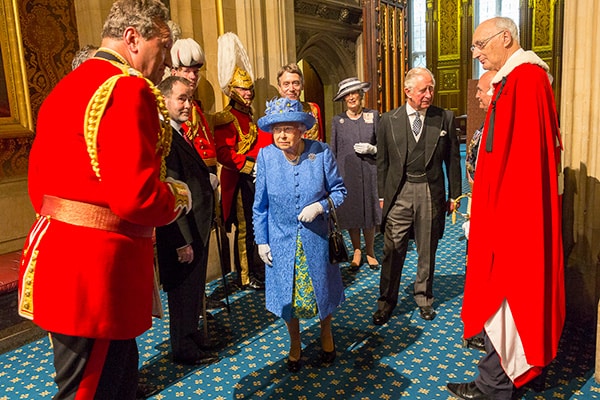
Both Brexit and Donald Trump’s election have mutated from appearing to be a form of divisive virus –that could spread– into becoming something akin to a vaccine for the EU and its members states. But its effects are likely to endure only for a limited period of time: following the French elections and the victory of Emmanuel Macron and his party –in addition to the foreseeable triumph of Angela Merkel or Martin Schulz in Germany in September– the EU has four years to set its house in order and re-launch itself to assuage the concerns of its citizens. Although Brexit and Trump have served as a stimulus to halting in their tracks various populist and Europhobic movements, if Europe’s governments and institutions fail to respond to their citizens’ concerns (economic, cultural or other) and to their growing sense of insecurity, populism is likely to surge again.
De Gaulle spoke of the US as an ‘external federator’. The current US President could have that same effect but from a negative position, as a catalyst –as in the case of the loss of a parent, elder brother or mentor– for new steps towards European integration. He can count on a bit of help from Putin, given the latter’s pressure on the EU/NATO’s eastern borders.
As Donald Tusk said before the last European Council meeting in Brussels, ‘Our optimism should still be extremely cautious’. ‘But we have good reason to talk about it’, he added in reference to economic recovery among other factors.
The 27 have reacted showing a united front to the Brexit challenge and to the negotiations that have finally started with a weakened British government following Theresa May’s poor showing in the elections she recently convened. The European Commission has taken advantage of the wait to produce interesting discussion papers over a wide range of topics, from the EU’s future to globalisation, social Europe, Economic and Monetary Union and a security and defence union. This is, ultimately, the revitalisation of the oft-promised but never delivered idea of a Political Union. Opinions, however, are divided among the 27, in a Union in which the French-German tandem remains essential but no longer sufficient. This is another Europe, in which the ‘others’ now have a greater say.
Nevertheless, Paris-Berlin is still at the core. While the initiative is Macron’s, and he has some firm proposals, the power to decide is still Germany’s, but how much is Berlin willing to pay for Macron? For now, Merkel is open to the idea of a budget and a Finance Minister for the Eurozone, but not to having Eurobonds. The central issue is whether Berlin will give in on a more flexible austerity or on its double deficit –trade and budgetary–, by spending more, raising wages and accepting some changes in the ground rules. An ageing German society, concerned about its pensions, suggests scant room for manoeuvre. But the response, be it Merkel’s or Schulz’s (or from both), will not only depend on Germany but also on the credibility Macron might accrue with domestic reforms in France that have been delayed far too long. If the French President is able to generate a renewed dynamism in France, then Germany might have a greater scope for flexibilisation. Macron also needs Germany’s cooperation. Should the latter neglect to provide it, he might fail as Nicolas Sarkozy and François Hollande did before him. In any case, it would benefit Spain –which has a chance once again to play an influential role– if Macron is successful and Germany turns towards him. The time available is four years, the length of a German legislature (plus, perhaps, a further year of Macron’s term in office).
Should he fail, and if in general the EU is unable to halt the great decoupling –ie, with the economy as a whole growing (and generating employment) but with significant segments of society failing to benefit sufficiently–, then populism might bounce back. For the time being the Netherlands, Austria and France (and Italy?) have avoided a populist triumph, of whatever stripe, but these movements have become normalised, trivialised and integrated into the political landscape. And they will still be there if during these four to five years the EU and its member states, from their new centre, fail to deliver.
Discourse seems to have made an about turn. Even the UK appears to be backing off from a hard Brexit and to be considering a softer one that can guarantee closer relations with the EU. Maybe for that reason the Queen wore such a European-coloured suit and hat for her Speech to Parliament. Despite a number of serious problems (immigration, democracy and the rule of law) in the East, Europe appears to have overcome its fear of the future, although there is no consensus about what precisely that future may be. The next few years, fraught with difficulties, will be decisive. The result remains to be seen, but perhaps we shall end up by praising both Brexit and Trump?


